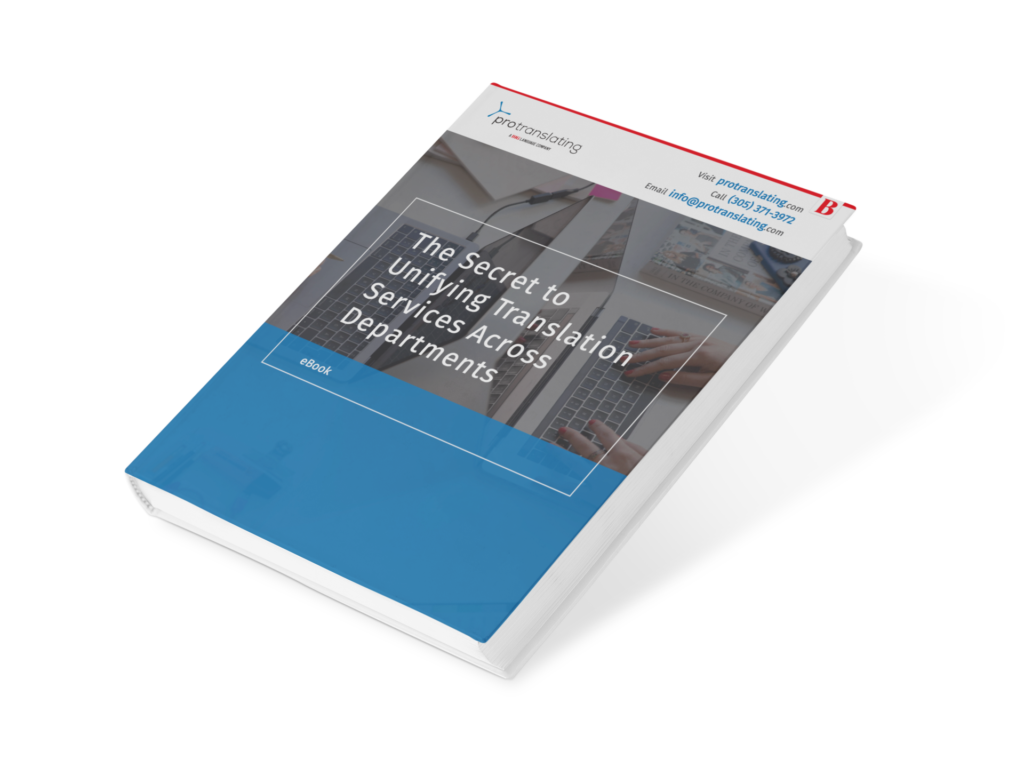When considering expanding your business globally, one must overcome the challenge of understanding a new language and culture. Whether entering your first international market or adding a new one, your presence, value proposition, and messaging must resonate with the end user, your customer, no matter where they live. A strong Language Service Provider can help you make the transition.
Understanding the Importance of a Language Service Provider
Language service providers (LSP) help you reach people in your target market in their native language through culturally-appropriate content. Expert translation, interpretation, localization, and other language services will help you better connect to and communicate with your customers, particularly in highly-regulated and technical industries. In addition, as you expand your company’s footprint around the globe, an experienced LSP will be a critical partner for your growth. High-quality LSPs typically offer the following:
- Expert translation services. The best LSPs provide expert translators who are native speakers of the languages they translate and are subject matter experts knowledgeable about specialized terminology in various industries. This expertise means that your written materials are accurately translated into your desired languages and are of the highest quality.
- Interpretation services. LSPs also provide interpretation services in multiple languages and various forms, including onsite (face-to-face), over-the-phone, and video remote. Language service providers can often provide access to interpreters with certifications and experience in specialized industries, including the legal and medical fields.
- Localization services. Top-rated LSPs also provide localization services. Localization ensures your content appropriately reflects your target market’s cultural norms and nuances. Localization also accounts for other important aspects of culture, such as everyday speech, systems of measurement, and various other conventions.
Choosing the Best Language Service Provider for You
Not all Language Service Providers are created equal. So how do you know which one to choose as your partner for global expansion?
Choosing the best LSP for your expansion can be a daunting task as the market is large and growing. Extensive due diligence is necessary, of course. However, it is also essential to know the common mistakes companies sometimes make when vetting language service vendors.
Here are three common mistakes to avoid when selecting an LSP partner:
1. Choosing an LSP Without the Requisite Technical Expertise
When selecting an LSP, you want to confirm they have technical expertise that aligns with your organization’s goals and strategies. Make sure you inquire about the LSP’s technology integrations, project and workflow management tools, information systems, and how they communicate across all stakeholders.
You will also want to confirm any accreditations the LSP has received. These include compliance with ISO standards and demonstrating quality management and assurance practices. For example, ISO 9001 addresses quality management system criteria specific to “a strong customer focus, the motivation and implication of top management, the process approach and continual improvement.” Particular in the language services industry, ISO 17100 addresses quality translation frameworks. Meeting these ISO standards indicates that the LSP has solid quality measures, making them highly reputable.
2. Selecting an LSP That Lacks Experience in Your Industry
Industry-specific expertise is critical to delivering high-quality, reliable translation, interpretation, and localization services. It is essential that the LSP you select understands your industry and has the necessary expertise and experience to manage your specialized content confidently. For example, if you operate in a heavily-regulated industry like finance, pharmaceuticals, or intellectual property law, your LSP must know and have worked in your industry. That includes understanding specialized jargon and concepts and possessing detailed knowledge about your target audience. Confirm the LSP can manage documents and conversations specific to your industry, including technical manuals, clinical trial briefs, and discussions about international legal contracts.
3. Hiring an LSP That Does Not Prioritize Security
Do not make assumptions about security. According to FinTech News, a cyberattack occurs every 39 seconds, with 72 percent of all security breaches targeting large companies. As you explore your LSP options, choose a provider that prioritizes end-to-end security protocols and best practices. You will want an LSP that invests in cybersecurity tools and strictly adheres to the processes detailed in System and Organization Controls (SOC) Type 2 reports. Furthermore, ensure the LSP carries a HITRUST CSF Certification. This status demonstrates that the organization’s Translation Management Software environment has met key regulations and industry-defined requirements and is appropriately managing risk.
The LSP you select should prioritize your data’s confidentiality and other security measures under ISO 27001. This standard addresses information security management compliance, enabling the LSP to “manage the security of assets such as financial information, intellectual property, employee details or information entrusted by third parties.”
You also want to confirm the LSP has a fully-developed disaster recovery procedure in place, as this adds another layer of protection for you. While all data is essential, some are particularly critical to business continuity. A disaster recovery plan is vital in case of a natural disaster, hacking, or malware. Ensure your LSP’s disaster recovery plan adequately accounts for your data’s security. Although a well-constructed recovery plan protects business continuity in a disaster, it should also protect the security of your data and other digital assets. Therefore, choosing an LSP that addresses both recovery and safety is critical.
Have questions on how a Language Service Provider can benefit your organization? BIG Language Solutions and our subbrands have over 160 years of expertise with offices in 29 cities worldwide. Through our portfolio, we customize and deliver language services in over 300 languages and dialects. So don’t wait; contact us today to see how we can be your next LSP.







